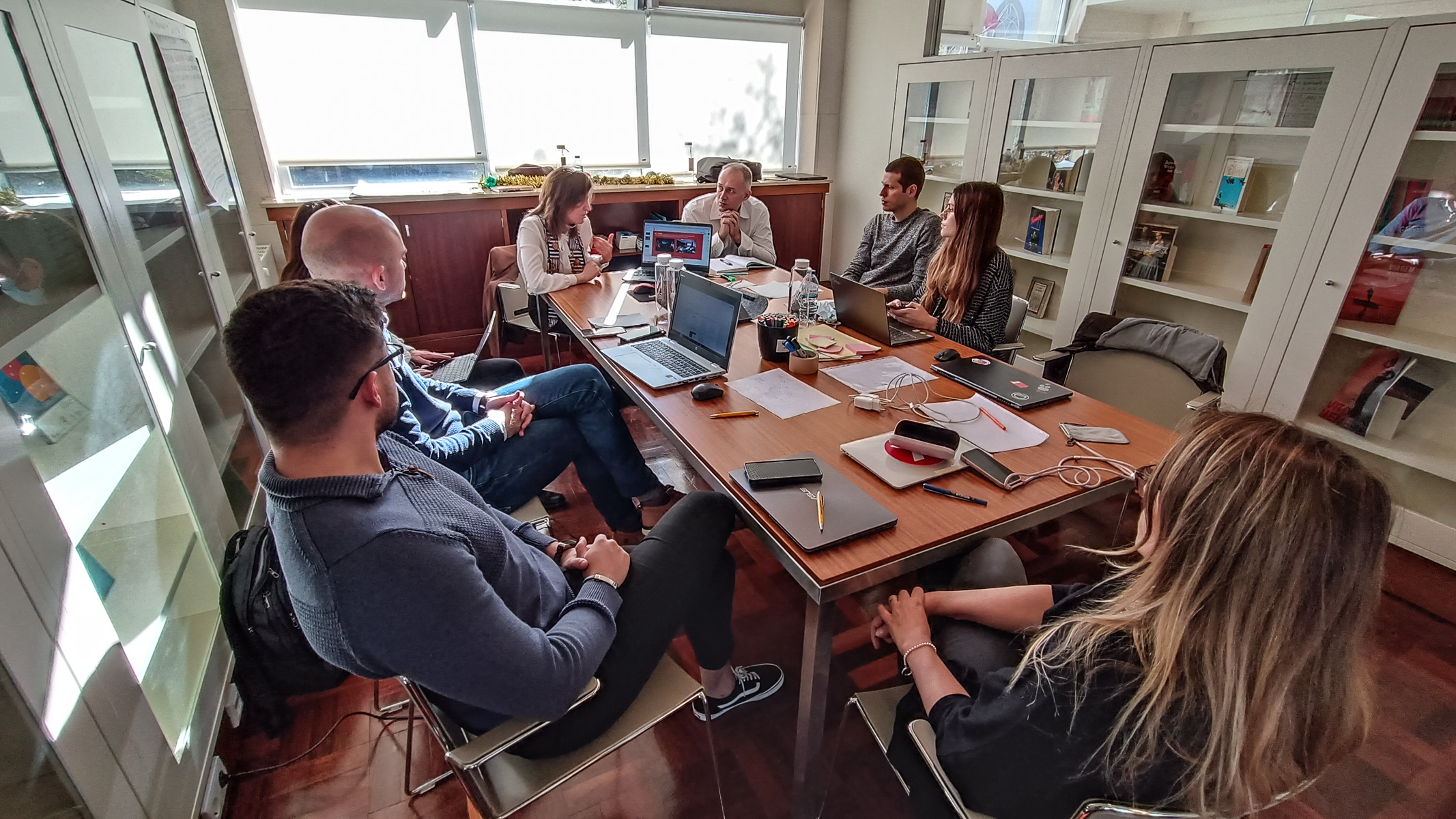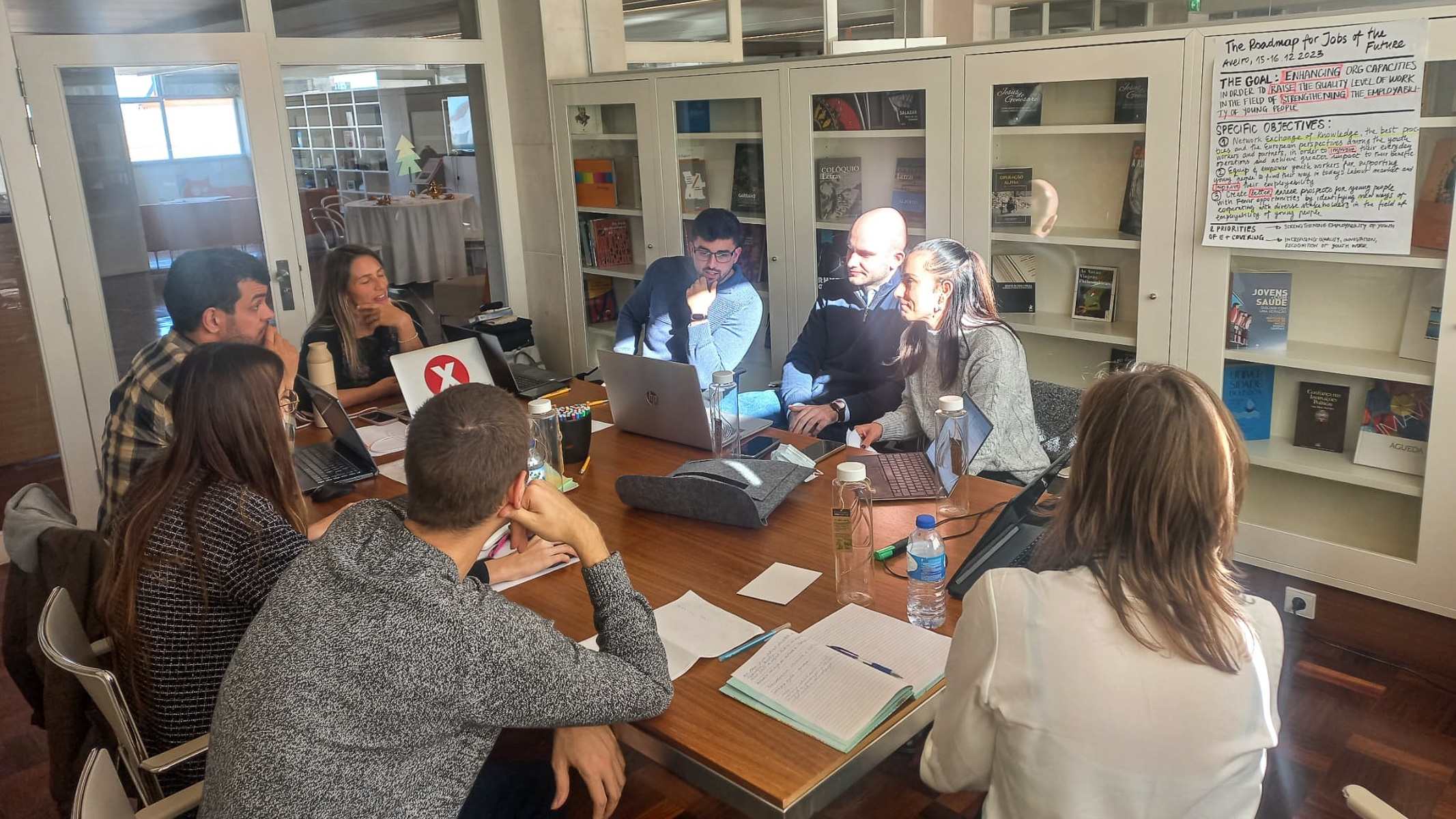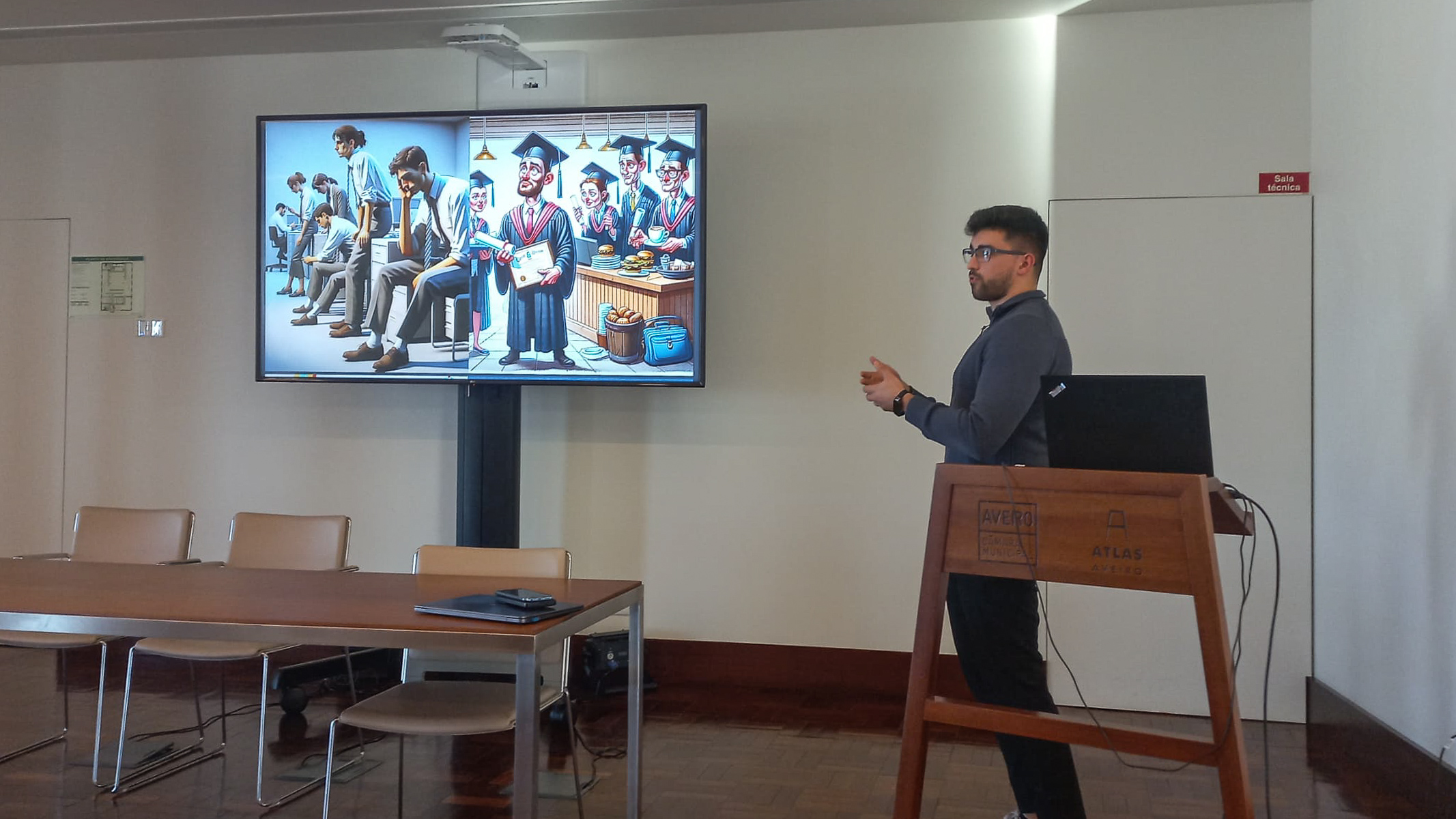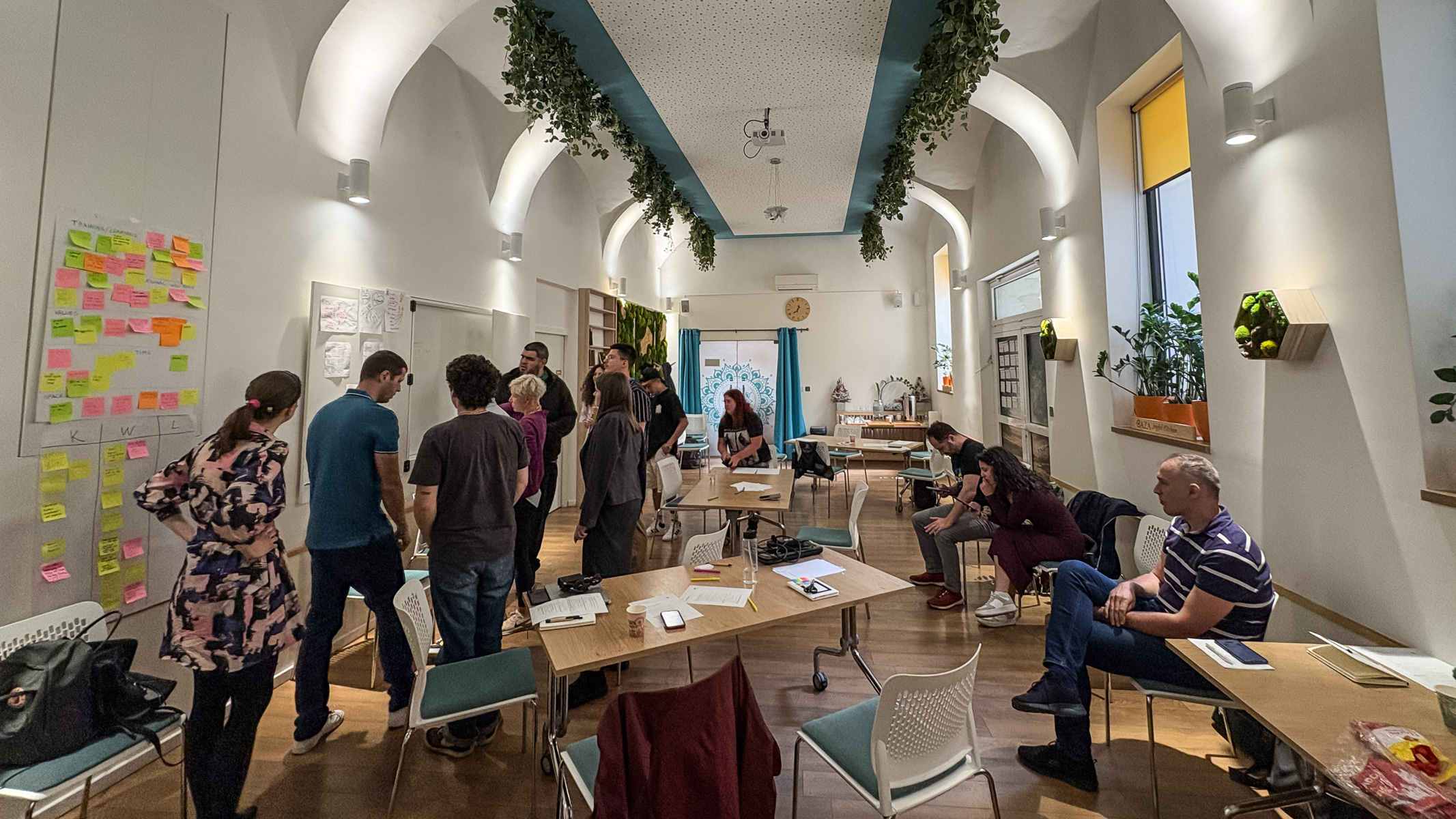Roadmap for Jobs of the Future Toolkit is here!
The world of work is changing and young people need support to keep up. This toolkit, created by Agora Aveiro together with its partners, is a practical compass for those who want to guide, empower, and inspire youth on their professional journey.
Estimated reading time: 3 minutes and 37 seconds
In a fast-changing and unpredictable world of work, many young people are left feeling unprepared, unsupported, and unsure of what direction to take. At Agora Aveiro, we believe that empowering youth with relevant tools, guidance, and support systems is essential for creating a more inclusive and resilient society. That’s why we’ve joined forces with two other organisations: INAT Centre, from Serbia and HUKI – Croatian Office for Creativity and Innovation, from Croatia, to develop a new resource that responds directly to the challenges young people face in today’s labour market.
The “Toolkit for the Employment Project – Roadmap for Jobs of the Future” is the result of a 20-month Erasmus+ small-scale partnership project designed to build the capacity of youth organisations working on employability and social inclusion. Throughout the project, we shared experiences, consulted with youth workers, identified real needs on the ground, and co-created a practical resource to support both youth professionals and young people themselves. The toolkit is a response to the complex realities of the 21st-century labour market — one that demands adaptability, self-awareness, lifelong learning, and a different kind of support.
The project “Roadmap for Jobs of the Future” was launched in 2023 with a shared mission: to increase the employability of young people, particularly those with fewer opportunities, by giving youth workers concrete tools and knowledge to help them along the way. We wanted to create something useful — not theoretical — and rooted in real, lived experiences. We also wanted to strengthen cooperation between organisations in Croatia, Serbia, and Portugal that are working on the frontlines of youth development, particularly outside of big urban centres.
The result is a comprehensive, hands-on toolkit built around nine chapters, each dedicated to a key dimension of youth employability today. It covers current job market trends and what they mean for young job seekers, strategies for maintaining mental health and work-life balance, and practical tools for building a personal brand and navigating job searches — especially in remote and digital environments. There are also chapters that address volunteering as a career-building opportunity, stakeholder mapping, youth advocacy, and the increasingly relevant topics of artificial intelligence and digital competence. Each section combines theory, real-life examples, tools and exercises that youth workers can directly use in their workshops or mentoring sessions.
The toolkit places a strong emphasis on inclusion. It was developed with young people from marginalised backgrounds in mind — including those from rural areas, migrant communities, or NEET situations. It also highlights the value of volunteering, not only as a way to give back to the community, but as a powerful entry point into the world of work. Several chapters explore how volunteering builds confidence, transferable skills, and connections that can help young people transition toward meaningful employment.
One of the core strengths of the project is its collaborative approach. Each partner brought something essential to the table. INAT Centre contributed its expertise in digital work, remote careers and IT skills. HUKI brought tools for entrepreneurship and stakeholder engagement. Agora Aveiro brought our long-standing experience in non-formal education, civic participation and working with youth from diverse backgrounds. Together, we created a toolkit that is informative but not prescriptive — something that can adapt to different contexts, needs, and learning styles.
More than a static document, this toolkit is an invitation to engage — to test, adapt, and evolve its content depending on your audience and reality. It’s meant to be used in training programmes, local workshops, mobility projects, and even in one-on-one mentoring sessions. Whether you are helping someone write their first CV or supporting a youth-led project that advocates for workplace rights, this toolkit offers flexible and useful resources that can be applied immediately.
Above all, this is a call for confidence — both in young people and in the youth workers who accompany them. The future of work might be uncertain, but with the right support and space to grow, we believe every young person can build a path that feels meaningful, fair, and truly theirs.
You can download the full toolkit here: agoraaveiro.org/en/documents
This project is co-funded by the Erasmus+ programme of the European Union. It is also supported by the Municipality of Aveiro and IPDJ - Instituto Português do Desporto e Juventude, I.P..

Agora Aveiro



